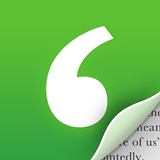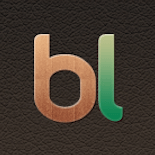At this point, the phrase 'reading in the digital age' may sound old and hackneyed, but it's undoubtedly still a hotly debated topic.
A quick Google search and you'll be inundated with questions such as:
"Has the Internet killed thoughtful, prolonged engagement with a text?"
"If there are stages of grief and steps to recovery, isn't the act of reading a complicated, evolving thing over time?"
"How do you model reading for children in the digital age?"
As more and more of us are turning to online reading, the way we pay attention to, digest and interpret words is also inevitably shifting.
Ziming Liu, a professor at San Jose State University who conducted a review of a number of studies comparing digital and print reading experiences, found that people tended to take on skimming behaviour when reading from a screen and tended to focus more on following the words when reading on a page. Another researcher, Anne Mangen, a professor at the University of Stavanger in Norway, reportedly found that the medium does, indeed, have an effect on a reader's comprehension.
Perhaps that's why I'm already halfway through my physical copy of The Goldfinch after only purchasing it some weeks ago and have read only five percent of The Brothers Karamazov on iBooks after starting it more than eight months ago...
Tackling the e-reading space
According to a forecast released by Forrester last year, which looks at factors driving e-book adoption across more than 50 countries, Europe will be the largest e-book market in the world by 2017 with estimated revenues of $19 billion.
Though there may be a big market, it's not an easy space to crack, especially with contenders such as Amazon's Kindle, Kobo and Barnes & Noble's Nook in the game.
Exhibit A: Readmill, the Berlin-based startup that offered one of the sleekest reading experiences on mobile and tablets but, like it said, "failed to create sustainable platform for reading". The startup was acquired by Dropbox in March of this year.
Despite the challenges facing the world of e-books, here's 10 European startups determined to help make your e-reading experience better (in no particular order):
1) LeKiosk
 Headquarters: Paris, France
Headquarters: Paris, France
Gist: Often dubbed the "Spotify for Press", LeKiosk provides users with a monthly subscription service for magazines. The platform – currently available in France, the UK and Italy – has a catalogue of more than 1000 magazines. Founded in 2007, the startup has raised about $10.9 million in funding.
2) txtr
 Headquarters: Berlin, Germany
Headquarters: Berlin, Germany
Gist: Founded in 2008, txtr is an independent e-reading platform, which offers an eBook store, e-reading app and digital reading services for clients. It is privately funded and backed by American multinational 3M. In 2012, the company also rolled out its own e-reading device called the txtr Beagle.
3) Bookmate
 Headquarters: Moscow, Russia
Headquarters: Moscow, Russia
Gist: Launched by Russian tech startup studio Dream Industries – which is also behind Zvooq – Bookmate is a subscription-based social eReading service for mobile devices with over 1.5 million active users. In May, Bookmate announced a $3 million investment from Russian e-commerce giant Ulmart.
4) 24Symbols
 Headquarters: Madrid, Spain
Headquarters: Madrid, Spain
Gist: Here's another Spotify comparison: 24symbols – often billed as a "Spotify for e-books" – lets users read from a catalog of about 100,000 titles on the cloud through a freemium-based subscription-based model. In May 2013, Spanish digital entertainment company Zed bought a 32% stake in 24symbols.
5) Fastr Books
 Headquarters: Riga, Latvia / Helsinki, Finland
Headquarters: Riga, Latvia / Helsinki, Finland
Gist: First created at the Garage48 hackathon, Fastr Books has since pivoted from speed reading app to e-book reader for iPhone and iPad. The app, launched in January 2014, features a collection of more than 5,000 free e-books as well as a 'RSVP' speed-reading mode.
6) BookLikes
 Headquarters: Poznan, Poland
Headquarters: Poznan, Poland
Gist: Tackling e-reading from another angle, BookLikes – founded in 2011 – is a social blog platform aimed at connecting readers through book discovery and sharing their reading experiences. The project is co-financed by the European Regional Development fund.
7) Ztory
 Headquarters: Karlstad, Stockholm
Headquarters: Karlstad, Stockholm
Gist: Founded in 2013, Ztory offers a subscription service – currently available in Swedish, Spanish and Catalan – for digital publications with a heavy visual component, such as magazines and children's books. The startup recently announced an undisclosed funding round from Wellington Partners and D-Ax.
8) Blinkist
 Headquarters: Berlin, Germany
Headquarters: Berlin, Germany
Gist: Blinkist, founded in 2012, aims to help time-constrained users by offering nugget-sized summaries – called 'blinks' – with key takeaways from non-fiction books. In November 2013, the startup landed a six-figure investment to further develop its product and expand to new markets.
9) Booke
 Headquarters: Wroclaw, Poland
Headquarters: Wroclaw, Poland
Gist: Founded by Grazyna Szczepaniak and Jarek Bogulak, Booke is an iOS app striving to bring digital reading capabilities – such as searching words and sharing excerpts – to physical books/texts. The Polish startup was selected to participate of the Startup Istanbul mentorship and training program.
10) *Openmargin
 Headquarters: Amsterdam, The Netherlands
Headquarters: Amsterdam, The Netherlands
Gist: Similar to e-reading app Readmill, *Openmargin aims to be a social platform for readers to share marginalia with each other (only on iPad for now though). Launched in 2011, the Dutch startup has remained eerily quiet on its social media channels since 2012 though its app is still available for download.
Any major ones we missed? Let us know.
Featured image credit: Connel / Shutterstock



Would you like to write the first comment?
Login to post comments